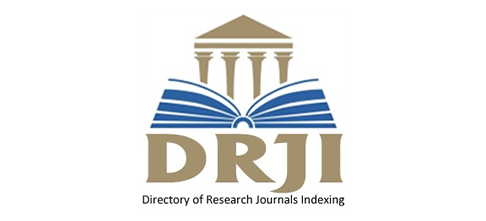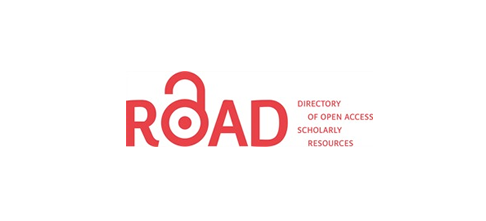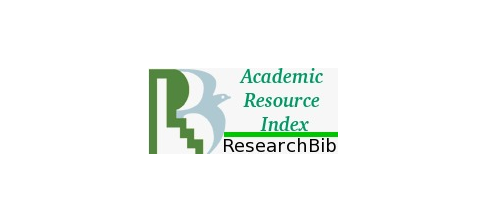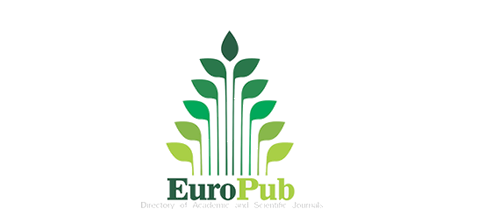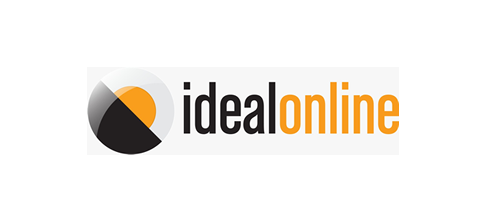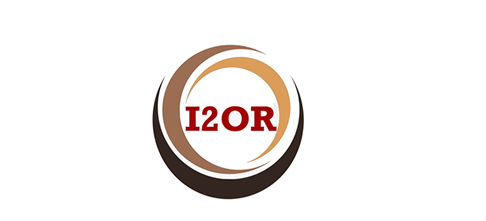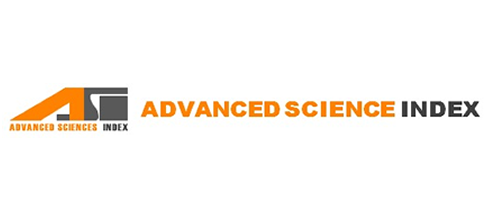BİLİMSEL ARAŞTIRMA VE YAYINA İLİŞKİN ETİK İLKELER
1. İstihbarat Çalışmaları ve Araştırmaları Dergisi (İÇAD) bilimsel araştırma ve yayın etiğinin esasları, evrensel kurallar üzerine kurulmuştur. Bilimsel araştırma ve yayının her aşamasında dürüstlük ve ahlak esastır. Bu çerçevede İÇAD Dergisinde yer alan etik görev ve sorumluluklarda Committee on Publication Ethics (COPE) tarafından kabul edilen ve yayınlanan etik ilkeler benimsenmektedir.
2. İÇAD’a gönderilen makaleler en az iki hakeme gönderilmekte ve karşılıklı olarak isimleri birbirlerinden gizli tutulmaktadır.
3. İÇAD’a gönderilen makaleler için hiçbir ücret ve karşılık talep edilmemekte, makale gönderme ve makale değerlendirme süreçleri ücretsiz olup aynı zamanda yazarlara telif ücreti de ödenmemektedir.
4. İÇAD’da yayımlanmak üzere sürekli olarak makale kabulü devam etmektedir. Hakem süreçleri sonucu kabul edilen makaleler yayımlanacak olan ilk sayı için sıraya alınmakta, şayet ilgili sayının yayım kontenjanı dolmuş ise bir sonraki sayı için rezerve yapılmaktadır.
5. İÇAD, Ocak ve Haziran aylarında yayımlanacaktır.
6. Yayımlanacak makalelerin ön kontrol ve hakem atama süresi ortalama 10 gündür. Hakem süreci başladıktan sonra hakemlerin 10 gün davet süresi, 30 gün değerlendirme süreleri bulunmaktadır.
7. Yazarlara verilen düzeltme süresi 15 gündür. Bu süre içinde düzeltme istekleri gerçekleştirilmeyen çalışmalar kabul edilmeyecektir. Editöre başvurulması ve editör tarafından uygun görülmesi halinde bu süre 10 güne kadar uzatılabilir.
BİLİMSEL ARAŞTIRMA ETİK İLKELERİ
Araştırma etik ilkeleri yapılacak araştırmalara ilişkin ahlaki kurallardır. İÇAD tarafından kabul edilen bilimsel araştırma etik ilkeleri aşağıda sıralanmıştır.
1. Verilerin elde edilmesi: Veriler, bilimsel yöntemlerle elde edilir. Bunların değerlendirilmesinde, yorumunda ve kuramsal sonuçların elde edilmesinde bilimsel yöntemlerin dışına çıkılamaz, sonuçlar saptırılamaz.
2. Açıklık: Araştırmalarda kullanılan veriler, malzemeler, kaynaklar ve bulgular kamuoyu ile açıkça paylaşılmalıdır.
3. Katılımcıların rızası: Araştırmalar kapsamında yapılacak anket ve tutum araştırmalarında katılımcıların rızası alınır. Araştırma, bir kurumda yapılacaksa, katılımcıların rızasından sonra bağlı bulundukları kurumun izni alınır.
4. Dürüstlük ve gerçeklik: Araştırmanın bulguları, araştırmacının kendi çıkarlarına göre uydurmamalı, başka bir yerden almamalı ya da bilinçli olarak yanlış yorumlamamalıdır. Sonuçları, metotları, prosedürleri doğru raporlamalı ve kamuyu yanıltmamalıdır.
5. Kaynakların kullanımı: Bilimsel araştırma için tahsis edilen imkân ve kaynaklar amacı dışında kullanılamaz.
6. Kişisel verileri koruma: Araştırmalarda, araştırmacılar bireylerin mahremiyetine ve sırlarına saygılı olmalı ve araştırmasında izin verilmediği sürece şahıs isimlerini kullanmamalı, kendi kimliğini de saklamamalıdır.
7. Fikri mülkiyet: Araştırmalarda, patent, telif hakkı ve diğer fikri mülkiyetlere saygılı olunması gerekir. Araştırmacı, izinsiz veri, yöntem ve sonuçlar kullanmamalı ve katkıda bulunanları mutlaka referans göstermelidir.
8. Gizlilik: Araştırmacılar tarafından, gizli iletişimler, personel kayıtları, ticari ve askeri sırlar, hasta kayıtları korunmalıdır. Yapılacak çalışmalarda, diğer kişi ve kurumlardan temin edilen veri ve bilgilerin, izin verildiği ölçüde ve şekilde kullanılması, gizliliğine riayet edilmesi ve korunması sağlanır.
9. Objektiflik: Araştırmalarda taraflı deney tasarımı, veri analizi ve yorumlardan mutlak suretle kaçınılmalıdır.
10. Bütünlük ve tutarlılık: Araştırmada bütünlük ve tutarlılık sağlanmalıdır.
11. Titizlik: Araştırmalarda dikkatsizlik yüzünden yapılan hatalar, çalışmanın baştan sona tekraren incelenmesiyle önlenmelidir.
12. Sosyal sorumluluk: Araştırmalarda sosyal sorunlara, toplumsal infiale yol açabilecek konulardan kaçınılmalıdır.
13. Ayrımcılık: Araştırmalarda, cinsiyet, ırk, köken ve diğer faktörleri kullanarak ayrımcılık yapılmamalıdır.
14. Hayvanlara özen gösterme: Araştırma sırasında kullanılan hayvanlara gereken ilgi ve saygı gösterilmeli. İyi tasarlanmamış ve gereksiz hayvan deneyleri yapılmamalıdır.
15. İnsanları koruma: İnsani konularda yürütülen araştırmalarda risk ve zarar minimize edilmeli, insan onuru, mahremiyeti ve otonomisi korunmalıdır.
16. Araştırma ve yayın etiğine aykırı eylemler şunlardır:
a) İntihal: Başkalarının özgün fikirlerini, metotlarını, verilerini veya eserlerini bilimsel kurallara uygun biçimde atıf yapmadan kısmen veya tamamen kendi eseri gibi göstermek,
b) Sahtecilik: Bilimsel araştırmalarda gerçekte var olmayan veya tahrif edilmiş verileri kullanmak,
c) Çarpıtma: Araştırma kayıtları veya elde edilen verileri tahrif etmek, araştırmada kullanılmayan cihaz veya materyalleri kullanılmış gibi göstermek, destek alınan kişi ve kuruluşların çıkarları doğrultusunda araştırma sonuçlarını tahrif etmek veya şekillendirmek,
ç) Tekrar yayım: Mükerrer yayınlarını akademik atama ve yükselmelerde ayrı yayınlar olarak sunmak,
d) Dilimleme: Bir araştırmanın sonuçlarını, araştırmanın bütünlüğünü bozacak şekilde ve uygun olmayan biçimde parçalara ayırıp birden fazla sayıda yayımlayarak bu yayınları akademik atama ve yükselmelerde ayrı yayınlar olarak sunmak,
e) Haksız yazarlık: Aktif katkısı olmayan kişileri yazarlar arasına dâhil etmek veya olan kişileri dâhil etmemek, yazar sıralamasını gerekçesiz ve uygun olmayan bir biçimde değiştirmek, aktif katkısı olanların isimlerini sonraki baskılarda eserden çıkartmak, aktif katkısı olmadığı halde nüfuzunu kullanarak ismini yazarlar arasına dâhil ettirmek,
f) Destek alınarak yürütülen araştırmalar sonucu yapılan yayınlarda destek veren kişi, kurum veya kuruluşlar ile bunların katkılarını belirtmemek,
g) Henüz sunulmamış veya savunularak kabul edilmemiş tez veya çalışmaları, sahibinin izni olmadan kaynak olarak kullanmak,
ğ) İnsan ve hayvanlar üzerinde yapılan araştırmalarda etik kurallara uymamak, yayınlarında hasta haklarına saygı göstermemek,
h) İnsanlarla ilgili biyomedikal araştırmalarda ve diğer klinik araştırmalarda ilgili mevzuat hükümlerine aykırı davranmak,
ı) İncelemek üzere görevlendirildiği bir eserde yer alan bilgileri eser sahibinin açık izni olmaksızın yayımlanmadan önce başkalarıyla paylaşmak,
i) Bilimsel araştırma için sağlanan veya ayrılan kaynakları, mekânları, imkânları ve cihazları amaç dışı kullanmak,
j) Dayanaksız, yersiz ve kasıtlı olarak etik ihlal isnadında bulunmak,
k) Bilimsel bir çalışma kapsamında yapılan anket ve tutum araştırmalarında katılımcıların açık rızasını almadan ya da araştırma bir kurumda yapılacaksa ayrıca kurumun iznini almadan elde edilen verileri yayımlamak,
l) Araştırma ve deneylerde, hayvan sağlığına ve ekolojik dengeye zarar vermek,
m) Araştırma ve deneylerde, çalışmalara başlamadan önce alınması gereken izinleri yetkili birimlerden yazılı olarak almamak,
n) Araştırma ve deneylerde mevzuatın veya Türkiye'nin taraf olduğu uluslararası sözleşmelerin ilgili araştırma ve deneylere dair hükümlerine aykırı çalışmalarda bulunmak,
o) Araştırmacılar ve yetkililerce, yapılan bilimsel araştırma ile ilgili olarak muhtemel zararlı uygulamalar konusunda ilgilileri bilgilendirme ve uyarma yükümlüğüne uymamak,
ö) Bilimsel çalışmalarda, diğer kişi ve kurumlardan temin edilen veri ve bilgileri, izin verildiği ölçüde ve şekilde kullanmamak, bu bilgilerin gizliliğine riayet etmemek ve korunmasını sağlamamak,
p) Akademik atama ve yükseltmelerde bilimsel araştırma ve yayınlara ilişkin yanlış veya yanıltıcı beyanda bulunmaktır.
(Kaynak: https://www.yok.gov.tr/Sayfalar/Kurumsal/mevzuat/bilimsel-arastirma-ve-etik-yonetmeligi.aspx)
EDİTÖRÜN UYMASI GEREKEN ETİK İLKELER
1. Editör; kendisine iletilen çalışmaları, yazarların din, dil, ırk, etnik köken, siyasi düşünce ve cinsiyet gibi özelliklerine bağlı kalmaksızın sadece çalışmanın kalitesine ve hakem yorumlarına göre değerlendirmesini yapar ve bu hususu takip eder.
2. Editör, etik ihlaller tespit etmesi durumunda makaleyi reddedebilir.
3. Editör dergiye iletilen çalışmalarla ilgili tüm bilgileri gizli tutar, bu bilgileri sorumlu yazar, editör kurulu ve yayın kurulu dışında kimseyle paylaşmaz.
4. Editör, hakem değerlendirme sürecinin çift taraflı kör hakemlik ile yapılmasını sağlar.
5. Editör, makalede sunulan bilgileri kendi araştırmaları için kesinlikle kullanamaz.
6. Editör, dergiye gönderilen makaleleri reddetmek, kabul etmek veya değişiklik istemekte tam sorumluluğa sahiptir.
YAZARLARIN UYMASI GEREKEN ETİK İLKELER
1. Yazarlar gönderdikleri çalışmanın özgün olduğunu, daha önce yayınlanmadığını beyan ederler.
2. Yazarlar, çalışmanın hâlihazırda başka bir dergide değerlendirme aşamasında olmadığını beyan ederler.
3. Yazarlar, çalışmadaki deneysel tasarıma ve uygulanmasına ya da verilerin analizi ve yorumlanmasına katkıda bulunmuş gerçek kişiler olmalıdır.
4. Yazarlar gerekli görülmesi halinde makalede kullandıkları veri setlerine ulaşım imkânı sağlamalıdırlar.
5. Yazarların yayımlanan makalelerinde önemli bir hata olduğunu fark etmeleri halinde editörü, makale yayımlanmadan önce bilgilendirmeleri gerekmektedir.
ETİK KURUL İZNİ GEREKTİREN ARAŞTIRMALAR
1. Yazarlar, etik kurul onayı gerektiren çalışmalar için etik kurul onayını dergiye sunmalıdırlar.
2. Yazarlar çalışmalarını İÇAD Dergisine gönderirken, “Etik Kurul İznine Gerek Olmadığına Dair Beyan Formu”nu doğru bir şekilde doldurup, imzalamak ve göndermek zorundadır.
3. Eğer etik kurul izini ve/veya yasal/özel izinlerin alınması gerekliyse, bu iznin hangi kurumdan, hangi tarihte ve hangi karar veya sayı numarası ile alındığı formla birlikte açıkça sunulmalıdır.
4. Etik kurallar çerçevesinde; İÇAD tarafından değerlendirilmesi için “Etik Kurul İzni” gerektiren araştırmalar aşağıdaki gibidir:
- Anket, mülakat, odak grup çalışması, gözlem, deney, görüşme teknikleri kullanılarak katılımcılardan veri toplanmasını gerektiren nitel ya da nicel yaklaşımlarla yürütülen her türlü araştırmalar,
- İnsan ve hayvanların (materyal/veriler dahil) deneysel ya da diğer bilimsel amaçlarla kullanılması,
- İnsanlar üzerinde yapılan klinik araştırmalar,
- Hayvanlar üzerinde yapılan araştırmalar,
- Kişisel verilerin korunması kanunu gereğince retrospektif çalışmalar.
HAKEMLERİN UYMASI GEREKEN ETİK İLKELER
1. Hakemler, yeterli uzmanlığa sahip olduklarını düşündükleri konularda hakemlik yapmayı kabul etmelidir.
2. Hakemler, zamanında ve yeterli olarak değerlendirebileceklerini düşündükleri çalışmalara hakemlik yapmayı kabul etmelidir.
3. Hakemler, hakem incelemesinin gizliliğine / mahremiyetine saygı ve özen göstermeli ve bir makalenin inceleme süreci sırasında veya sonrasında, yayımlananların ötesinde çalışmayla ilgili hiçbir bilgiyi açığa çıkarmamalıdır.
4. Hakemler, hakemlik sürecinde elde ettikleri bilgiyi kendilerinin veya başkalarının avantajı için kullanmamalıdır.
5. Hakemler intihal veya diğer etik ihlallerden şüphelendiklerinde dergi editörüne mutlaka bildirmelidir.
6. Hakemler çıkar çatışması olabilecek durumlarda hakemlik yapmamalıdır.
7. Hakemler, değerlendirmelerinde objektif ve yapıcı olmalı, kişisel yorumlar yapmamalıdırlar.
YAYIN POLİTİKASI
1. İstihbarat Çalışmaları ve Araştırmaları Dergisi – İÇAD’a gönderilecek yazılar, özgün ve daha önce hiçbir yayın organında yayımlanmamış veya aynı anda değerlendirilmek üzere gönderilmemiş olmalıdır.
2. Dergiye gönderilen makalelerin ve çalışmaların tamamı lisanslı bir intihal programı kullanılarak incelenmektedir. Bu programlardan alınan rapora göre benzeşme oranı kaynakça hariç %10’un üstünde olan makale ve çalışmalar hakem sürecine girmeden reddedilir.
3. İstihbarat Çalışmaları ve Araştırmaları Dergisi – İÇAD’a gönderilen ve yayımlanması uygun görülen çalışmaların tüm yayın, yayım ve dağıtım hakları Terörizm ve Radikalleşme ile Mücadele Araştırma Merkezi Derneği’ne aittir.
4. İÇAD Dergisinde yayımlanan çalışmalardan alıntı yapılması halinde kaynak belirtilmesi zorunludur. Yazının tamamının kullanılması derginin iznine bağlıdır.
5. Yayımlanan yazıların sorumluluğu yazarlarına aittir. Yazılardaki görüşler İstihbarat Çalışmaları ve Araştırmaları Dergisi – İÇAD’a ve Terörizm ve Radikalleşme ile Mücadele Araştırma Merkezi (TERAM) Derneği’ne mal edilemez.
6. Dergiye gönderilen çalışmalar, yayımlansın veya yayımlanmasın iade edilmezler.
7. Yazarlar makaleler yayımlanmadan önce telif hakları ve lisans sözleşmesini imzalar ve telif haklarını Dergiye devrederler. Telif hakları lisansları, araştırmaların yayımlanması, dağıtılması ve kullanılması haklarını ayrıntılı olarak göstermektedir.
YAYIN ETİĞİ
1. Bilimsel araştırmanın tasarlanması, planlanması, yürütülmesi ve yayına hazırlanması aşamalarında katkıda bulunmamış kişiler, yazar isimleri arasında gösterilemez.
2. Bilimsel yayınlarda bir çalışmadan yararlanırken, bilimsel atıf kurallarına uygun olarak kaynak gösterilir.
3. Henüz sunulmamış veya savunularak kabul edilmemiş tezler veya çalışmalar, sahibinin izni olmadan kaynak olarak kullanılamaz.
4. Evrensel olarak tanınan bilim kuramları dışında hiçbir çalışmanın tümü veya bir bölümü, izin alınmadan ve asıl kaynak gösterilmeden yayımlanamaz.


